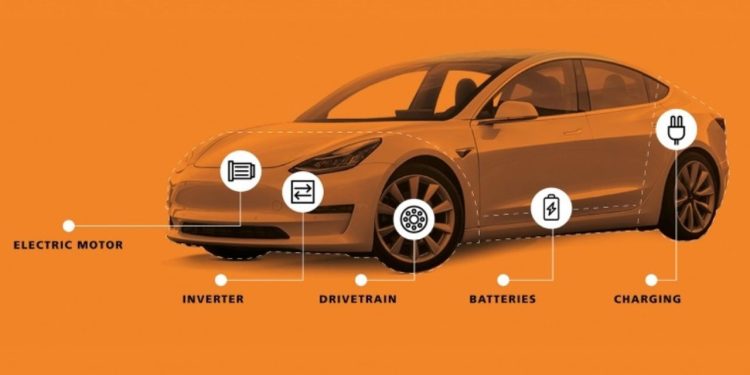Climate change poses an existential threat to mankind, as emphasized by the Secretary-General of the United Nations in 2018.[1] Recent events such as heavy rains in China and devastating fires in Turkey and Australia serve as stark reminders that without a holistic approach to climate change, disasters will continue to occur. Globally, the transportation sector accounts for approximately one-quarter of CO2 emissions, with cars contributing a significant 72% of these emissions. To mitigate these emissions, electric cars have emerged as a promising alternative, with sales surging in the past few years. Many major automakers have even pledged to cease selling gasoline-powered cars.
While electric vehicles (EVs) are often hailed as the future of sustainable transportation, it is crucial to examine whether this perception holds true.
Comparison with fossil fuel cars:
The fundamental distinction between EVs and fossil fuel cars lies in the method by which potential energy is converted into kinetic energy. In fossil fuel cars, potential energy (PE) is transformed into kinetic energy (KE) through a chemical reaction within the engine, releasing CO2 and other pollutants that contribute to climate change. In contrast, EVs harness chemical energy stored in lithium-ion batteries, eliminating the need for combustion during the PE to KE conversion, thus preventing the release of pollutant chemicals and toxicants. From a macro perspective, EVs appear to offer a cleaner mode of transportation, but the devil is in the details.
Devil in the details:
Charging EVs requires access to plug-in stations. However, a frequently overlooked aspect is the source of electricity that powers these stations. If the electricity does not come from renewable sources such as solar power or wind turbines, the environmental benefits of EVs are undermined. For instance, in the United States, where 60% of electricity is generated from fossil fuels, an individual driving an EV likely charges their vehicle using electricity produced from fossil fuels. To make EVs a genuinely environmentally friendly solution to the climate crisis, it is imperative that countries transition to renewable energy sources, as outlined in the Paris Agreement, with numerous nations committing to shift their electricity generation toward renewables.
Another issue associated with EVs is the production of their batteries. Lithium-ion cells, which power EVs, heavily rely on raw materials like cobalt, lithium, and precious earth elements. The extraction of these raw materials poses environmental hazards and is often linked to human rights abuses. Studies have shown that cobalt mining generates tailings and slag that can contaminate the environment. A substantial portion of the world’s lithium comes from regions in Argentina, Bolivia, and Chile, where the extraction process consumes significant amounts of water. Research indicates that manufacturing EVs requires over 50% more water compared to traditional vehicles.
Recycling car batteries is also essential, as a failure to do so can lead to environmental damage. For instance, lead-acid batteries, commonly used in fossil-powered cars, are recycled at a rate of 99% in the USA. However, this level of recycling is not achievable for lithium-ion batteries due to their specific composition and limited lithium content, making the recycling process economically unfeasible.
While there is no denying that EVs represent a cleaner and more modern approach to transportation, the road to sustainability is not without its challenges. To ensure the long-term sustainability of EVs, the world must significantly increase the share of renewable energy in its electricity generation, and EV manufacturers must explore more sustainable materials for battery production.


